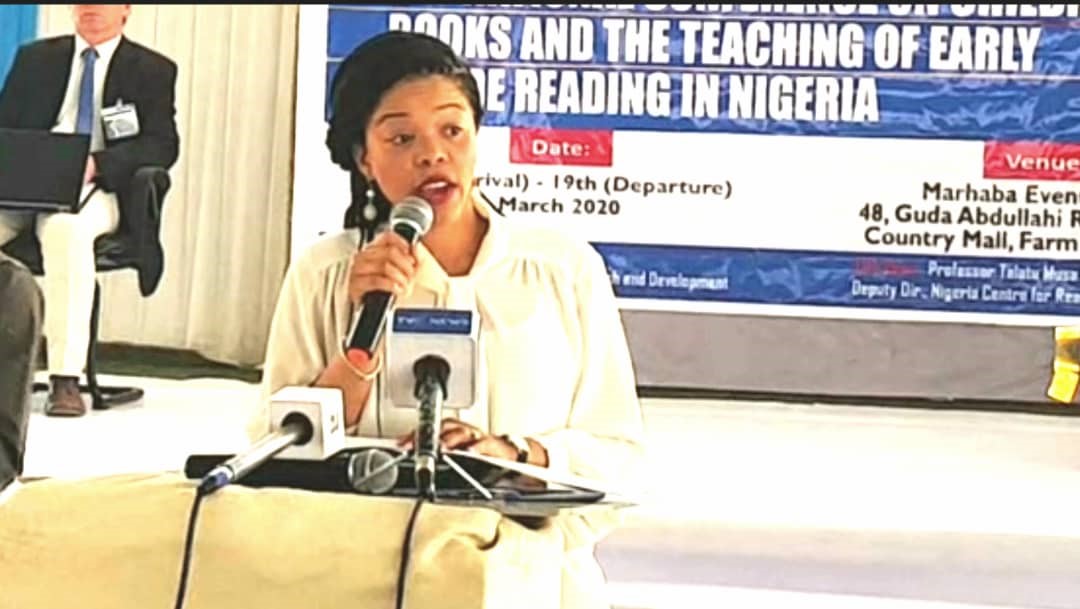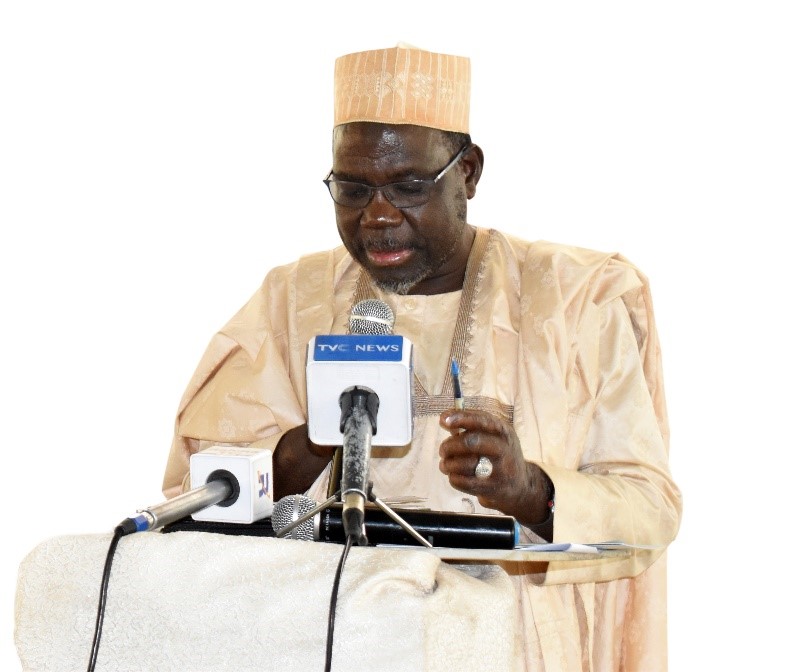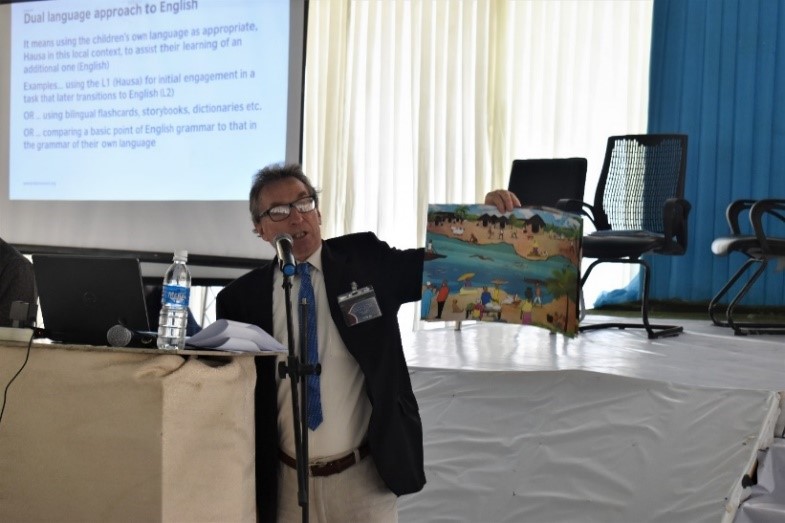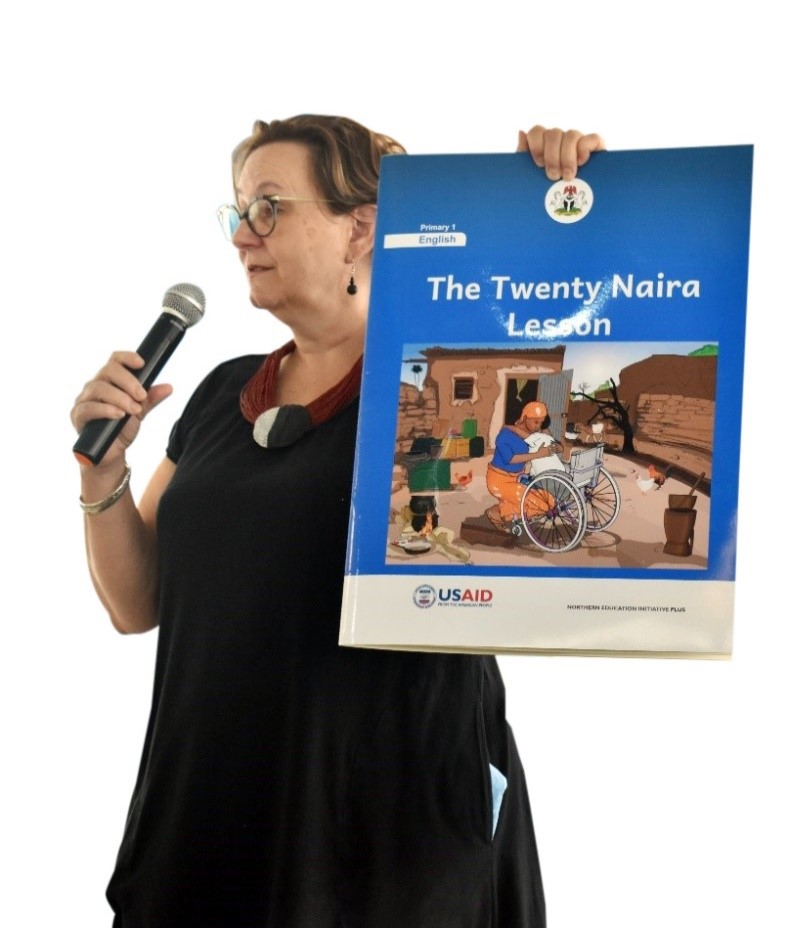The second National Conference on Children’s Books and the Teaching of EGR in Nigeria was held in Kano from 17th to 18th, March 2020.
The Nigerian Center for Reading Research and Development (NCRRD), Bayero University, Kano in partnership with the USAID funded Northern Education Initiative Plus (NEI Plus) project organized the conference for Academics, Educators, Publishers, Writers of children’s books, government and the public.

The NCRRD, which is the first of its kind, was founded to assist the next generation of Nigerian children develop stronger reading skills. Elice Elegbe, USAID Deputy Director Education Office said, “I therefore applaud BUK’s commitment and the leadership of Prof. Ismail Tsiga to ensure that Early Grade Reading receives critical focus in Nigerian schools and would have the prominence it deserves in any effective curriculum.” Ms. Elegbe continued, “One way the centre can help achieve this is by developing curriculum in local languages which should be used to as a foundation to teach the skills of reading before studying in English or in any other language. A child who starts to read in a language he/she understands will be better equipped to take on learning English in the later grade and ultimately get more out of their education. Over the last three years the United states has been a pioneer on this subject in Nigeria. Through USAID we have distributed more than 3 million books and teacher’s guides for Early Grade Reading in Hausa and English. Similar materials are being developed in Igbo and Yoruba which will also be deployed later this year.”

In his opening remark, Prof. Mohammed Bello, Vice-Chancellor Bayero University said that the conference will help check the decline in reading culture. He said that there can be no meaningful learning without books as “Books lead readers to explore deeper into the world of the unknown”.
Several presentations highlighted teacher training as a critical factor that effects teaching EGR in Nigeria. Dr. John Simpson, Senior Advisor for English in Education Systems, Sub-Saharan Africa, British Council said, “Early Grade reading materials are unavailable in many languages”.

He added that approaches that will help improve Early Grade Reading in Nigeria include: “Use of dual language approach to learning English and the use of first language to engage in learning and later transfer skills to reading in English language”.
To highlight an innovative approach in the teaching of EGR, the Northern Education Initiative Plus Chief of Party, Dr. Jordene Hale presented “English instruction through Big Books in primary 1 in Sokoto and Bauchi states”. She discussed that as English is a second language for children in the north, they need to see themselves and their everyday lives in the stories. Children need to learn to speak in English before they learn phonics.

In exploring the way forward in Early Grade Reading, it was also necessary to highlight appropriate monitoring of teachers and improving teaching methodology. Mustapha Ahmad, the NEI Plus Bauchi State Team Lead, presented a paper on the Local Education Monitoring Approach (LEMA). He explained the components and indices for assessing learning and reading outcomes in schools. Indices of the LEMA include teachers’ preparedness and attendance, pupil’s attendance, classroom, and pupil’s engagement, community participation in monitoring, mentoring, and coaching.
At a table outside the hall, NEI Plus displayed student textbooks and story books, teachers’ guides, and NEI Plus fact sheets. Many of the over 200 visitors to the stand asked about using the Let’s Read! and Mukaranta! materials in schools in their communities.
While participants expressed satisfaction on a time well spent in analyzing the factors that impede EGR in Nigeria and the way forward, it is a little too early to celebrate the proceeds of this gathering. During a round table discussion, participants concluded that to see more positive change, all must take deliberate steps to enhance teacher training and access to EGR materials.
Written by Christiana Ogbe & Adebisi Adetunji
Comments are closed.


